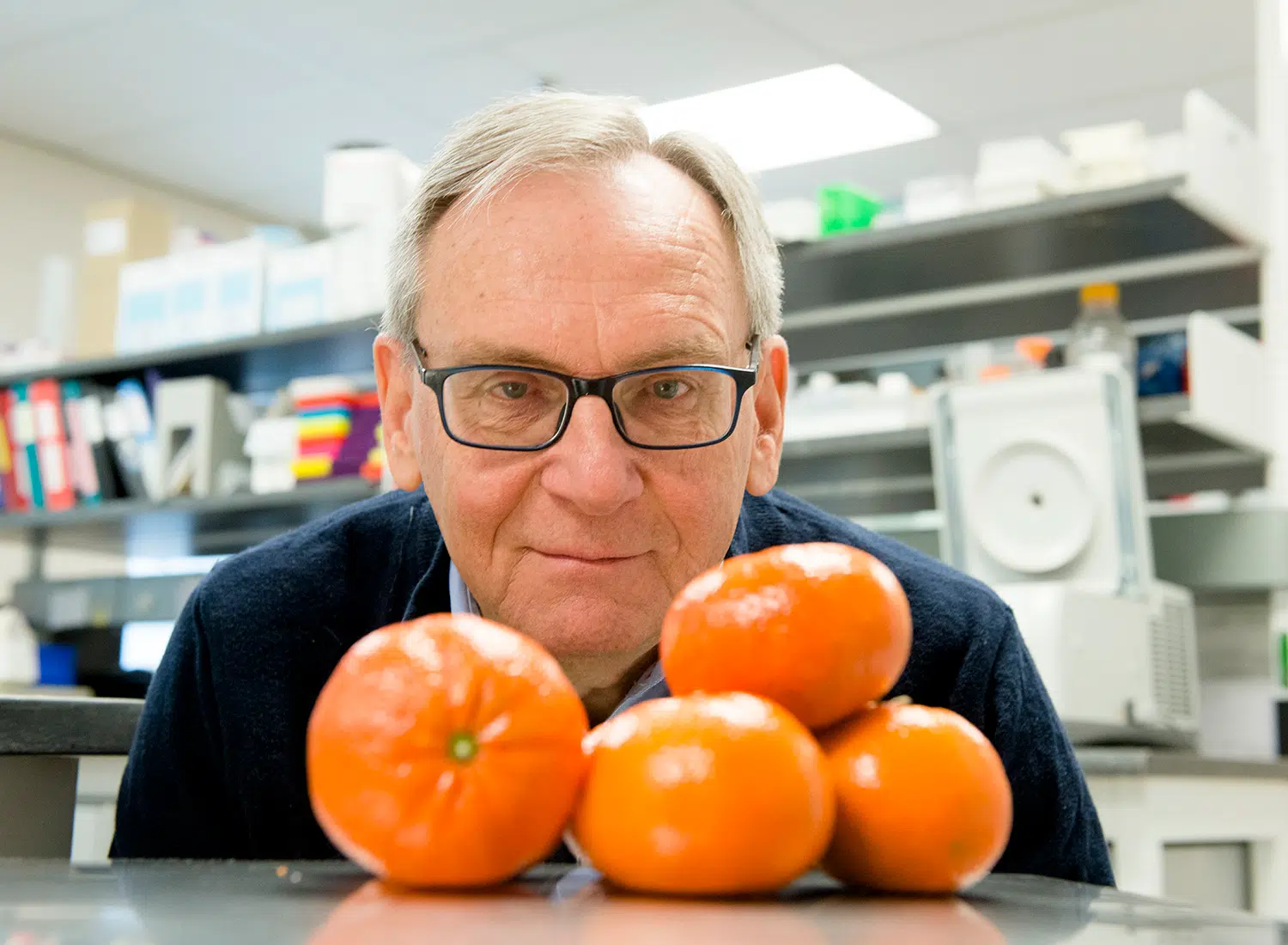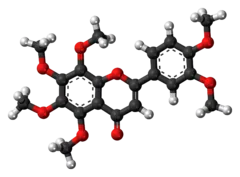Western University researchers have been studying a molecule found in oranges and tangerines that could change the game of fat loss.
Dr. Murray Huff is supervising research into the molecule called nobiletin.
According to Western University, Dr. Huff has been studying nobiletin for over a decade, and a breakthrough has been made.
The research
Huff says the research started with cells in a dish.
“It all began a number of years ago when we discovered that this molecule, which is isolated from sweet tangerines, sweet oranges, and tangerines, and is a member of a family of molecules called flavonoids, when used in tissue culture, had an effect on fat metabolism.”
During their research, they graduated to using mice to test nobiletin.
When mice are fed high-fat and high-cholesterol diets similar to what humans may ingest, they become obese, as Huff explained. This results in high fat in the blood, fatty livers, as well as pre-diabetes. That’s where this molecule, nobiletin comes in.
“When we added nobiletin to that same diet, it completely prevented all those symptoms,” said Dr. Huff.
But it didn’t end there.
They then allowed their mice to become obese and develop complications related to obesity. When they were given nobiletin in their food, the question was whether or not it would help.
“We could intervene with nobiletin added to the diet. Obesity would reverse, those metabolic syndrome features would disappear, and [plaque build-up in arteries would reverse]. So we’re pretty excited about that,” said Huff.
The puzzle now is figuring out how it works. Something called the AMP Kinase pathway was their first clue. In layman’s terms, it’s an energy

Nobiletin is found in orange peels (Picserver)
sensor found in all cells. Its purpose is to sense when a cell is low on energy, at which point it is activated to create more energy by burning stored energy, also known as fat. It also blocks the creation of new fat because it wants to use that energy immediately.
It worked.
Nobiletin activated these AMP Kinase pathways, but what happened next was a surprise.
“When we use cells from an animal in which AMP Kinase had been knocked out genetically, so it didn’t even have this pathway,” said Dr. Huff. “nobiletin still modified fat metabolism favourably.”
On mice with these pathways genetically removed, it still worked.
“Then we added nobiletin, and guess what? It was all fixed. It was all corrected, just like wild type mice.”
This is important because AMP Kinase is the target of the most prevalent drug used to treat type two diabetes, Metformin. Metformin works by activating AMP Kinase. This means nobiletin could potentially be used alongside Metformin to great effect.
In addition to the positive effects that were observed in mice, nobiletin actually seemed to work quite quickly.
“We were looking at anywhere from 4 to 12 weeks. But for example, insulin or glucose metabolism, i.e. the pre-diabetes, was corrected in under a week,” began Dr. Huff.
“When we intervened with the dose of nobiletin that we did intervene with, mice were quite fat. They lost probably 75% of that fat within three and a half weeks.”
Future research
According to Huff, the beginning of human trials are already in the works.
“Toxicity studies are just about finished. The next step would be to find a GMP facility that could manufacture it in a highly purified form for human use. Then, of course, it needs an approved application from either Health Protection Branch Ottawa or FDA,” he said.
Huff said that since nobiletin doesn’t need to be injected and it is ingested instead, something as straightforward as a highly purified nobiletin pill could be a solution.
“First of all, you would need to use it in normal individuals. And then the second step would be, if there were no downsides to that, then looking at the target audience,” he said.
“In this case, it would be those with metabolic syndrome. Most overweight, high blood fats, pre-diabetes, or even established type two diabetes.”
As for a timeline of when we’ll know the results of human trials,
“My guess would be four to five years from now,” said Dr. Huff.
As for approval,
“One can never guess in this business when something would be approved. That’s when the business people and the politics people get involved.”
For the average person
When it comes to metabolic issues, obesity, and other issues related to obesity, nobiletin has the potential to be a game-changer.
When asked what a discovery like this meant for the public, Huff had a very positive answer.
“Well, it means that there’s another tool under development that may eventually make it to the marketplace that could really help with people who suffer from obesity or other aspects of metabolic syndrome, including pre-diabetes,” he told XFM News.
Huff said that the main driver is to lower burdens on our healthcare system.
“Anything that’s going to be used for the treatment of obesity and the symptoms of metabolic syndrome is warranted because it’s so prevalent in our society, and so linked to downstream health consequences, including cardiovascular disease,” he said.
“Any new treatments, particularly good ones, are going to be not only highly sought after, but incredibly useful.”



